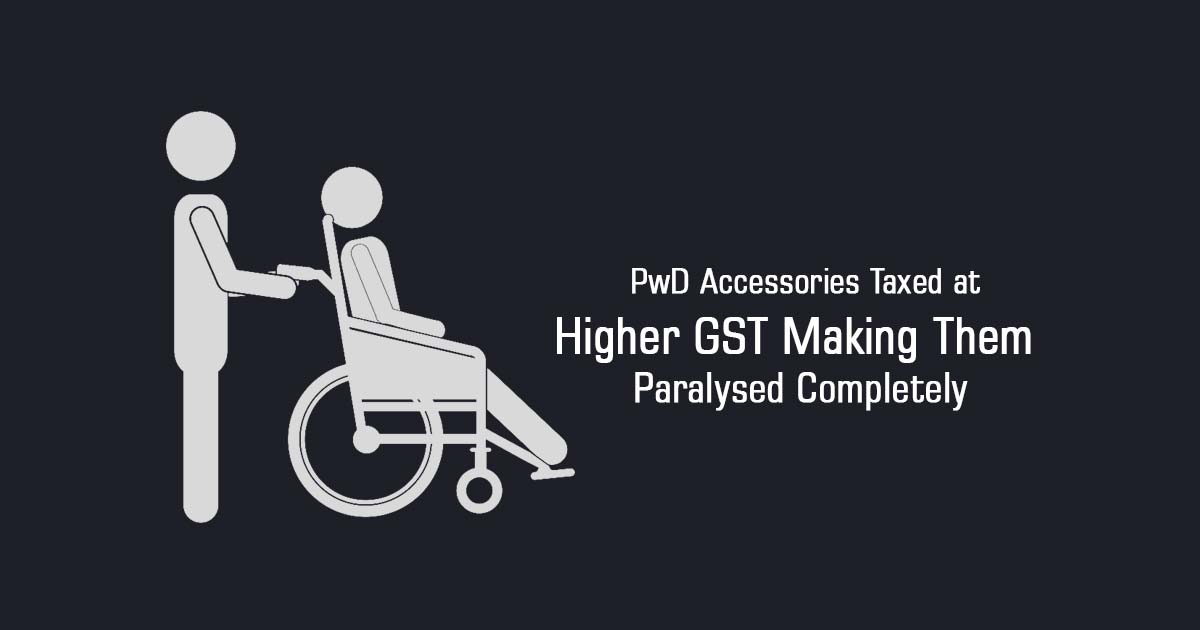Under the new GST Tax regime, it seems the plight of the disabled has gone to deaf ears. In Pre-GST times aids like wheelchairs, crutches were zero-rated. However, these now attract 5% GST. This has left the PwD (persons with disability) fuming and helpless. A few immediate repercussion of GST on accessories and aids for the disabled include:
- The accessories come with an expiry date. Increasing cost of living will force most of the disabled people to continue using old accessories for too long that they may even worsen their condition.
- 5% GST is levied on Basic aids and appliances like knee calipers, Braille writers and cochlea.
- Special Accessories like customized cushions for wheelchairs have been categorized into the luxury slab and will attract 28% GST.
- Manufacturers are in a confused state because of the rate ambiguities demanding a clearer picture.
- Experts stress that this is similar to taxing body parts as most of the costly accessories aid in the movement of the individuals.
A Step back in Time?
The 5% GST was limited to 22 such products in the category. Some wheelchair owners compare this with 2006 when it was zero-rated and argue the move is a step back in time.
While the inclusive growth of one and all was high on the agenda for the current central government, the disabled person might look at the current set of rules and think otherwise. Nirmita Narasimhan, policy director, The Centre for Internet and Society, says, “This is the government that launched the Accessible India campaign and Inclusive India campaign. I don’t understand why they should charge people to walk with a cane.”
Read Also: Demonetisation and GST Contributed to Decline in Household Savings Rate
The Problems
While the debate over taxing of the disabled can go for hours with no clear winner, the accessibility to public transport in most remote areas in the Indian States as well as some cities deserves no words. Hence, disabled people have to put an extra effort on their behalf. With life already throwing challenges of all scale and type right on the faces of these special people, the GST on their basic needs or ‘rights’ (if we may use the term) seems a little far-fetched for increasing tax accrues.
The Solution
Paying taxes is a way to contribute towards Nation’s Growth. Some even call it the biggest moral duty towards the nation. However, in a country like India where the number of an educated yet unemployed section is growing by the day, the state of income for disabled draws even a more sorry figure. Most of these people are not well educated and can’t afford a healthy livelihood. ‘Compromise’ remains a friend and a guru for such people.
However, the accentuating effect of poverty on the misery of these people can be eliminated by stern institutional measures like the specific vocational course as well as employment in small-scale cottage industries. The state unless it provides an environment that fosters work and a standard of living has little right to collect taxes. This could not be truer for India where a generation of young people (disabled and abled) have been the mere witness to great unfulfilled promises.
Recommended: No Goods and Services Tax on Supplies to Kerala Flood Victims
